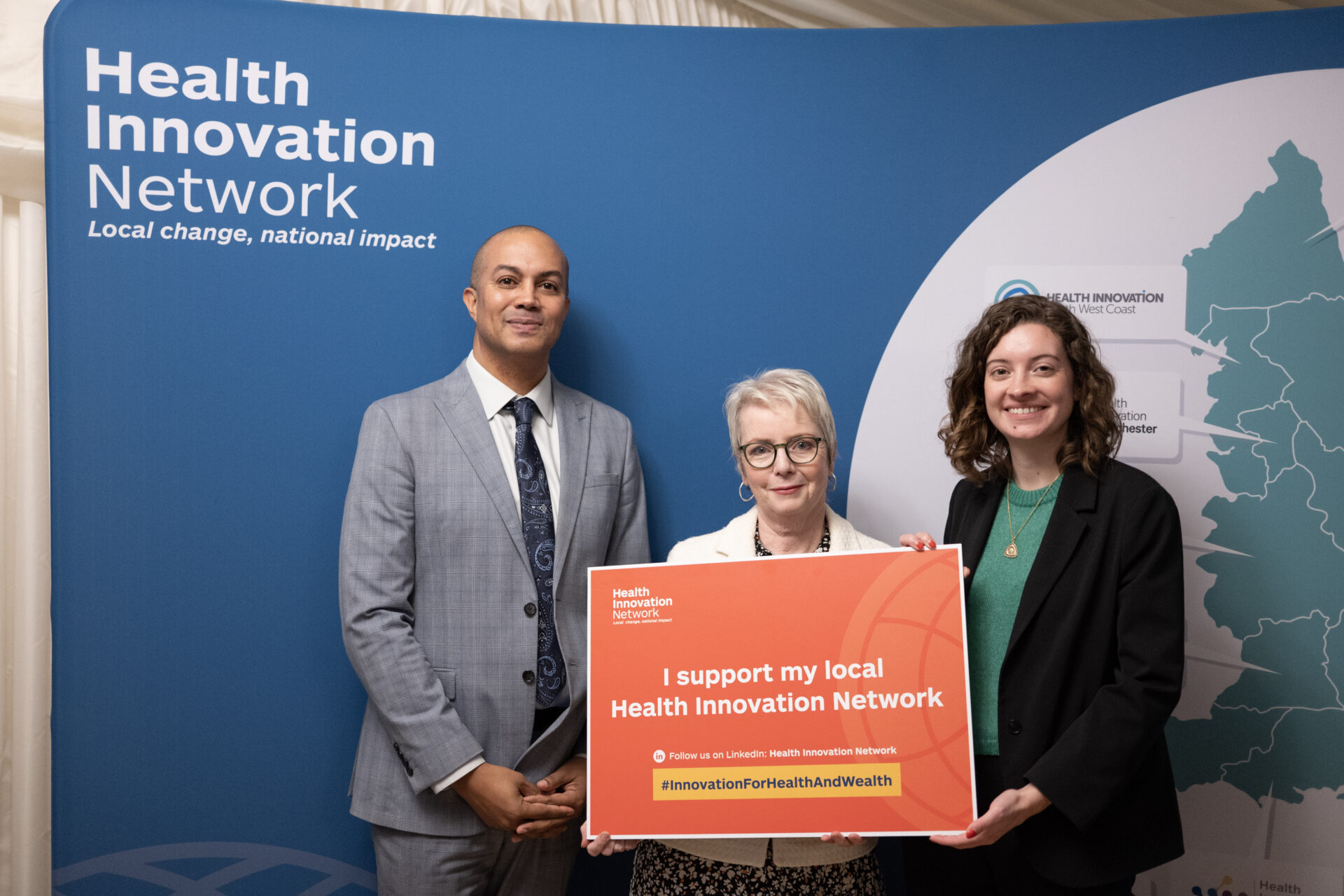The Government and NHS England have today confirmed their intention to relicense England’s 15 Academic Health Science Networks (AHSNs) under the revised badge of ‘Health Innovation Networks’ (HINs), to reflect our key role in supporting development and spread of innovation across health services.
Following yesterday’s (25 May) Life Sciences Council meeting, it was formally announced today that NHS England would commission the Health Innovation Networks for five years, until 2028.
Set up in 2013 by NHS England to act as innovation arms of the NHS, AHSNs work locally and nationally to support the spread of all types of innovation within the NHS, from new technologies to ways of working and service improvements. Under the Department of Health and Social Care and the Department of Science, Innovation and Technologies’ joint commission – the Office for Life Sciences (OLS) – AHSNs also provide bespoke support to innovators to accelerate promising innovations from development to adoption, and boost economic growth.
AHSNs began working collectively as the national AHSN Network from 2018, when the first set of national programmes were adopted. Since then, AHSNs have delivered 11 national adoption and spread programmes and supported the rapid uptake of 28 NICE-approved products. These initiatives alone have benefited more than 2.3 million patients. AHSNs have also helped to leverage investment of more than £1.8bn for UK Plc in the same timeframe.
Professor Gary Ford, Chair of the AHSN Network and Chief Executive of Oxford AHSN said: “It is a testament to the collective impact of the AHSNs over the past 10 years that our commissioners have issued a further licence. We welcome the opportunity and challenge this provides for our teams to identify, develop and spread innovations that meet the priorities of the NHS over the next five years.
“Under the new banner of Health Innovation Networks each organisation will continue to support local innovation and transformation working with their Integrated Care Systems (ICSs) within their region, support innovators to develop innovations to address local needs, and come together as a national network to evaluate and spread promising solutions at scale.”
“The challenges facing the NHS will only be met by widespread adoption of innovation in digital and diagnostic technology and in data to transform clinical pathways and empower patients.”
Matt Whitty, Director of Innovation, Research and Life Sciences for NHS England, said: “The Academic Health Science Networks play a key role in driving the uptake of health innovation and economic growth, enabling patients to benefit from earlier diagnosis, more effective treatments, and faster recovery.
“The renamed network will have a critical role to play in supporting the new Integrated Care Systems to adopt innovations and will be aligned to NHS priorities such as tackling health inequalities and fulfilling the Life Science’s Vision to deliver improved public services and grow the economy.”
The new licence will come into effect from 1 October 2023. More information about the roll out of the new licences, priority programmes and collaboration with NHS England and the Office for Life Sciences, will follow during the summer.

The Health Innovation Network is delighted to announce the launch of Innovation Insights, a brand-new webinar series designed to highlight the latest in health innovation, offering attendees valuable insights into the adoption and spread of innovation within the health and care landscape. Each interactive webinar will feature: Expert presentations: Delivered by thought leaders across [...]

The Health Innovation Network, at an event sponsored by Sarah Coombes MP, brought together parliamentarians including Health Minister Karin Smyth MP and Chair of the Science, Innovation and Technology Committee, Chi Onwurah MP to meet with six innovators supported by health innovation networks across the country and their NHS partners. At the Meet the Innovators: [...]

The need for fast-paced innovation in healthcare is widely acknowledged. And ensuring that healthcare innovation is shaped by the people it serves remains a pressing priority – one made all the more evident by the growing emphasis on health equity in the 10 Year Health Plan. Patient voices are often cited as central to healthcare [...]






